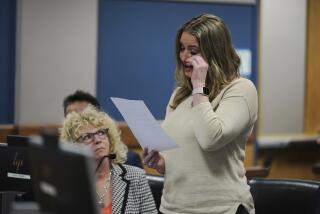Keeping Quiet in the Face of Fraud
- Share via
Discussions in the press of the $41-million settlement by the law firm of Kaye, Scholer, Fierman, Hays & Handler of the $275-million lawsuit brought by the federal government alleging wrongdoing in the firm’s representation of Lincoln Savings has failed to focus on a central issue. To be sure, the issue that has been raised regarding the awesome power of a government agency to unilaterally seize assets is both relevant and compelling. But it must be evaluated within a context--and that context is missing from the press’ coverage.
Kaye, Scholer maintained that it was under obligation to keep confidential information about its client’s overstated financial position and misleading underwriting practices. Indeed it was. But the source of that obligation, which has thus far escaped scrutiny, is the American Bar Assn.’s code of ethics. Under recently enacted rules, lawyers must keep silent when clients use their services to perpetrate fraud. Lawyers argue that the rule is necessary because in an adversary system, the client must be able to place full trust and confidence in the lawyer. Keeping silent in the face of ongoing fraud, they argue, is a necessary if not essential element of the adversary system.
Perhaps. But does society, which is vitally affected by lawyers’ rules of ethics, have any right to demur? Would Lincoln Savings have been able to engage in the same fraudulent activity in the absence of the ongoing assistance of its lawyers--fraud which, the government charges, the lawyers were aware of when they rendered their services? Should society give deference to lawyers’ rules of ethics that tend to facilitate the commission of fraudulent acts?
Consider that the rule in question makes lawyers’ services more valuable. A lawyer who must remain silent, even as his client is using those services to commit fraud, commands a higher price than one who must disclose fraud or who is prohibited from providing services that facilitate any continuing fraud.
Lawyers have used their professional hegemony to enact so-called rules of ethics that are arguably harmful to societal interests. Yes, the government responded to the lawyers’ invocation of the shield of the rules of ethics by launching an oppressive armor-piercing asset freeze. Is a coercive response by government an appropriate counter to lawyers’ efforts to impose an “ethical” regime that favors lawyers, increases the likelihood of fraud and imposes high costs on society?
Now that the issue has been defined, let the debate begin.
More to Read
Inside the business of entertainment
The Wide Shot brings you news, analysis and insights on everything from streaming wars to production — and what it all means for the future.
You may occasionally receive promotional content from the Los Angeles Times.










